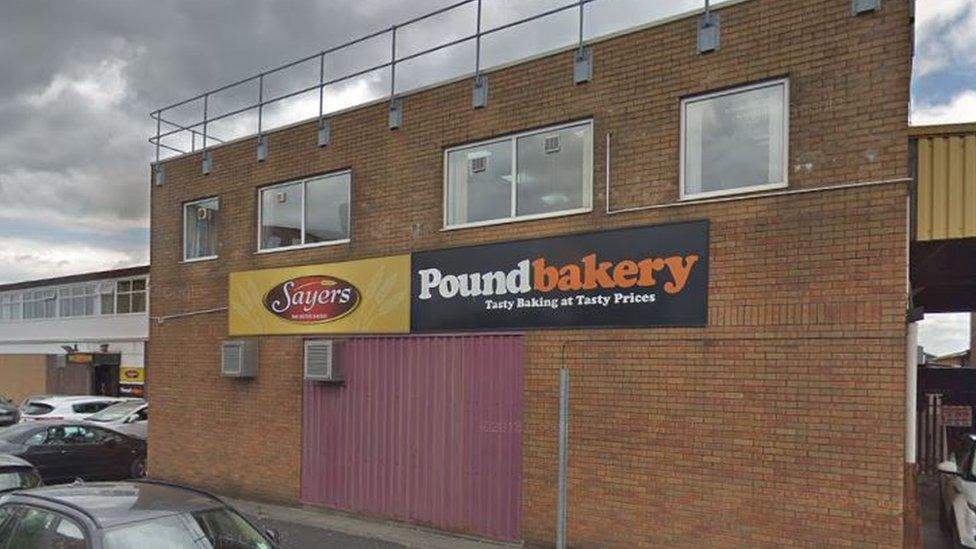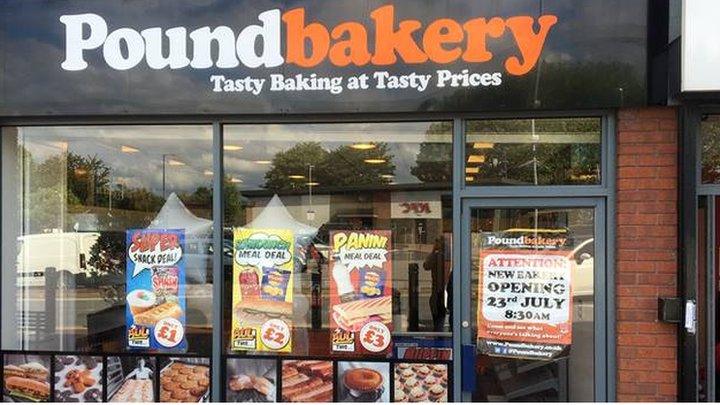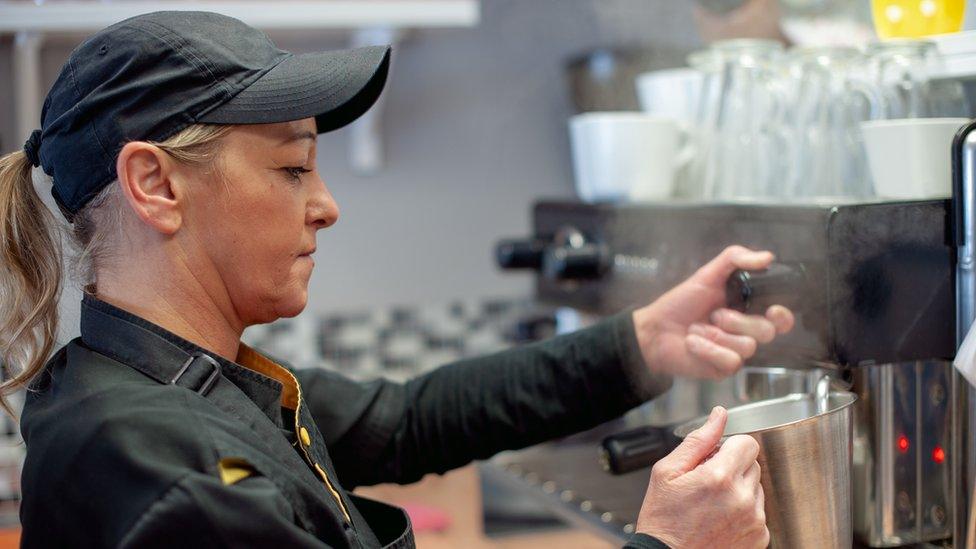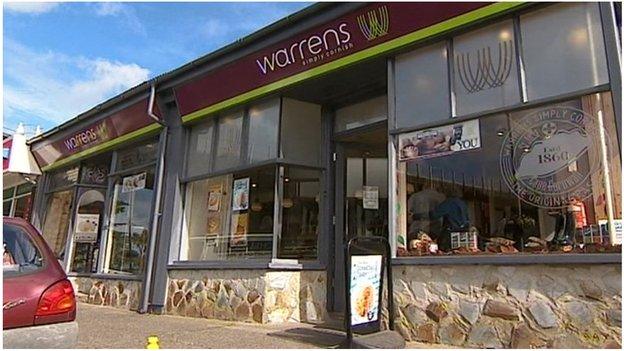Sayers the Bakers: Collapse 'partly driven by' National Living Wage rise
- Published

The headquarters of Sayers and Poundbakery, which bought Sayers the Bakers after it went into administration
Increases in the National Minimum Wage and National Living Wage contributed to the collapse of a chain of bakery stores, administrators said.
Bolton-based Sayers the Bakers went into administration in December 2019, putting up to 1,400 jobs at risk.
Administrators Grant Thornton said increasing staff costs contributed to "particularly challenging trading conditions" in recent years.
The company, which had 166 stores and a £48m turnover, was subsequently sold.
The challenging conditions "were driven in part by the well-publicised deterioration in the high street environment but also by an increasing cost base," said Sarah O'Toole, from Grant Thornton, in a report to creditors published this week.
The increasing costs were "most notably ingredients and employee costs with increases in the National Minimum Wage and National Living Wage," she said.
'Insufficient funds'
Both the National Living Wage, paid to those aged 25 or over, and the National Minimum Wage, for those aged up to 24, are set to rise by over 6% in April, in what the government has said is "the biggest cash increase ever".
Describing the change, which follows a series of smaller increases, Prime Minister Boris Johnson said: "For too long, people haven't seen the pay rises they deserve."
Hannah Essex, co-executive director of the British Chambers of Commerce, said many businesses "have struggled with increased costs in a time of great economic uncertainty".
"Businesses want to pay their staff a good wage," she said. "For this policy to be sustainable, government must offset these costs by reducing others."
Almost 160 companies and other organisations were owed a total of £1.3m by Sayers the Bakers when it collapsed, according to the report to creditors.
While the group was sold following the administration process, "there will be insufficient funds" to repay any unsecured creditors, it said.
A new company, Sayers and Poundbakery, was formed to buy the bakery chain and will continue trading, meaning many of the jobs involved will be saved.
Eleven stores will close, meaning around 100 staff will be made redundant. The chain previously ran stores across Northern England, North Wales, Yorkshire and the Midlands.
- Published19 December 2019

- Published31 December 2019

- Published23 November 2019

- Published1 October 2019
